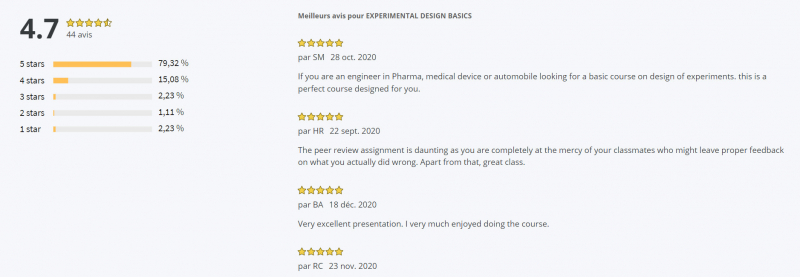Experimental Design Basics
As the name implies, Experimental Design Basics is a basic course in designing experiments and analyzing the resulting data. The course objective is to learn how to plan, design, and conduct experiments efficiently and effectively, and analyze the resulting data to obtain objective conclusions. Both design and statistical analysis issues are discussed. Opportunities to use the principles taught in the course arise in all aspects of today’s industrial and business environment. Applications from various fields will be illustrated throughout the course. Computer software packages (JMP, Design-Expert, Minitab) will be used to implement the methods presented and will be illustrated extensively.
All experiments are designed experiments; some of them are poorly designed, and others are well-designed. Well-designed experiments allow you to obtain reliable, valid results faster, easier, and with fewer resources than poorly-designed experiments. You will learn how to plan, conduct and analyze experiments efficiently in this course.
By the end of this course, you will be able to:
- Approach complex industrial and business research problems and address them through a rigorous, statistically sound experimental strategy
- Use modern software to effectively plan experiments
- Analyze the resulting data of an experiment, and communicate the results effectively to decision-makers.
This course offers:
- Flexible deadlines: Reset deadlines based on your availability.
- Get a Certificate when you complete
- 100% online
- Beginner level
- Course 1 of 4 in the Design of experiments specialization
- Approximately 1 hour to complete
- Subtitles: Arabic, French, Portuguese (European), Italian, Vietnamese, German, Russian, English, Spanish
Participants: 12,008
Enroll here: https://www.coursera.org/learn/introduction-experimental-design-basics











